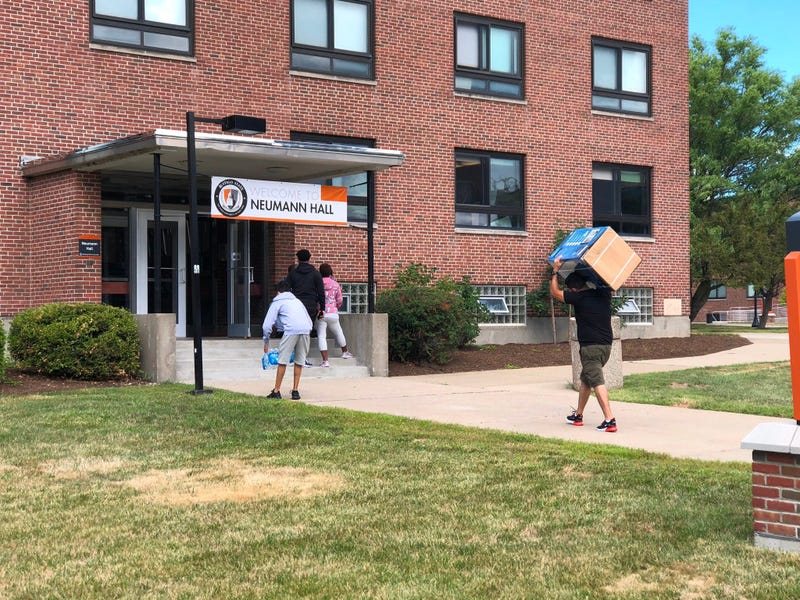
Buffalo, NY (WBEN) - For countless families across the country, colleges and universities are opening in disarray and confusion, with coronavirus outbreaks triggering sudden closings, mass quarantines and deep anxiety among students and parents.
Notre Dame and Michigan State universities became the latest colleges to move classes online because of the coronavirus as colleges struggle to contain outbreaks and students continue to congregate in large groups without masks or social distancing.
Last week, we learned of COVID 19 cases confirmed at two Western New York area colleges.
As classes are set to begin, how much of a concern is there for COVID19 spread? It depends on how well a college's plan is as well as how well students abide by the plan, says UB's Dr. Tom Russo.
"If the students follow that plan and use masks, social distancing, don't gather in large groups without masks when it comes to eating and drinking, then the likelihood of contracting it will be no greater and less than other venues in the community," says Russo. "Students aren't isolated. People from the university leave campus and interact with people in the community, and at UB 75 percent of students commute." Russo says following the guidelines is key.
Russo says more confirmed cases in college will be inevitable. "When students return, there will be some cases that will pop up," explains Russo. "In many instances, it may be difficult to determine between acquisition from community interaction vs. interaction on campus. That will be determined through contract tracing."
Russo says another concern is the college's plan to deal with a positive case. "Is a plan in place to properly isolate that person, Do contact tracing and it's also important once a person has been diagnosed, that person needs to be monitored."says Russo. He adds most patients will be asymptomatic.
"Our society is conducting a very large social experiment right now, and we don't know the outcome," says Dr. Bruce Troen of UB. "Risk is uncertain and probably much higher than previously imagined. Even with the best of approaches in the on campus setting, the risk is going to be such that it's very likely that students will be infected and pass it on to others. It still depends on the fidelity of the students' adherence to a regimen to reduce the risk, so after school activities also matter."
He says one New England college is taking a rigid approach to making sure students abide by protocols. "Williams College in Massachusetts, which has decided to reopen, but with a very strict set of expectations and an honor code for students to not engage in gatherings that would put students, faculty and staff at risk," explains Troen.
